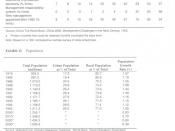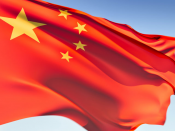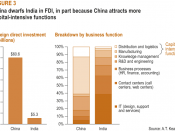China: Facing the 21st century
Through the history, China had faced several kinds of problems, for example the failure of the Imperialism, the Japanese invasion, the Civil War and Mao's dictatorship. The era of economic reform came until Deng Xiaoping took control over the country with all the problems inherited from Mao's government. Deng's philosophy was basically focused on improved the economy and stability. In Deng's words: "It doesn't matter whether a cat is white or black, as long as it catches mice", what he tried to express was that no matter whether the decisions were from an open market economy or from a socialist system as long as it has good impact in the economy. Given the challenges, especially in the rural areas, Deng decided to start doing Reforms in the Countryside, followed by Trade and Investment, State-Owned Enterprise and the Institutional Reform.
Firstly, a reform in the economic system was an urgent necessity in the agricultural sector because before, China was considered one of the poorest countries in the world due to the fact that 60% of its population earned less than $1 per day and the majority lived in rural areas.
The previous way of organizing agriculture consisted in a work-point system by which individuals received points according to factors such as time, effort, skill and attitude and the income was calculated at the end of the year depending on the earned points1. The most important critic to this system is that rewards are not connected to the work performed at the moment and bad results are reflected on people's low productivity. For that reason the government implemented the "Responsibility Household System" by which individuals were able to sell their crops above the planned quota into free market with unregulated prices. This dual-track price system had an...


